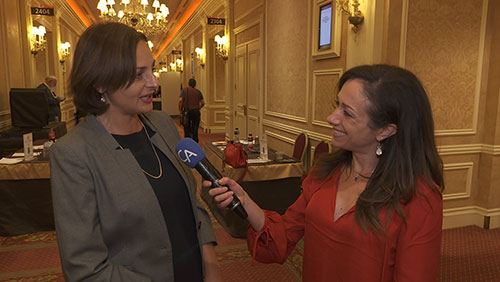In this interview with CalvinAyre.com’s Becky Liggero, Asia Gaming Brief co-founder Rosalind Wade shares her insights in the Asian gaming market.
Gambling operators love Asia because of its growth potential. Asia has the biggest gambling market compared with other jurisdictions due to the fact that 60 percent of the world’s population are Asians.
Tech-savvy Asians are also shaping the industry. They help operators innovate their offerings in order to keep up with the mounting demand.
Gambling operators’ relationship with the Asian market, however, isn’t always a rosy one. Like in all relationships, there are several bumps in the relationship that frustrates gambling operators.
Rosalind Wade, co-founder of Asian Gaming Brief, pointed out that the biggest issue that hounds the Asian gambling market is the payment system. Unlike in North American and European gaming markets, Wade pointed out most Asian gaming markets don’t have the payments system option.
“Payments issue is probably the biggest issue, I have to say, in Asia. You just don’t have the option available that there are available in Europe, for example,” Wade told CalvinAyre.com. “A lot of those are underground banking system, it works for the agency system.”
She believes that the lack of payment options in Asian gaming market could be a welcome opportunity for bitcoin and cryptocurrencies.
“With the increase of more cash-based operators, I think that situation is now alleviating. I think there could be good potential for bitcoin and cryptocurrency sites. I would imagine seeing more of those,” she said.
The AGB co-founder also noted the major changes that are taking place in the Asian gambling scene, particularly in the regulatory spheres.
She is predicting that both Cambodia and Vietnam are going to publish their respective iGaming regulations soon while she “doesn’t anticipate South Korea is going to do something too soon.”
When it comes to the Philippines, Wade pointed out that present policymakers continue to work on the right online gaming regulation model as the gaming market in the country matures.
“PAGCOR, for over just a year now, has gotten into the online gaming regulation business. They originally offer 25 licenses, I think they’ve increased that up to 50. There are still some controversy. They may have not gotten the right model just yet but they’re still working on it,” Wade said. “As more and more jurisdictions regulate casino gaming, hopefully online gaming wouldn’t be too far behind that.”
